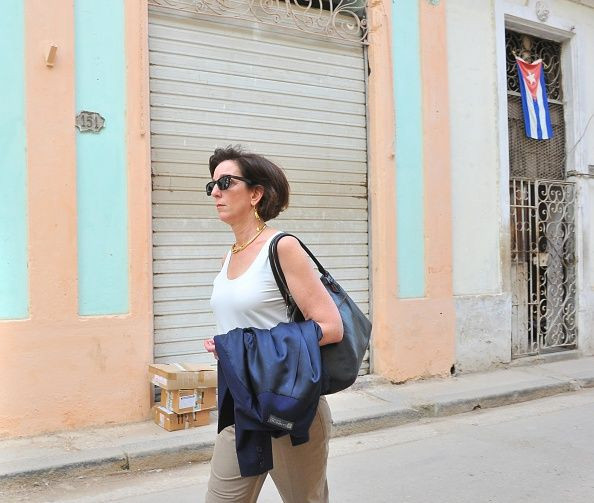US-Cuba Relations: Obama Administration Has 'No Illusions' That Human Rights Will Improve Soon In Cuba

The Obama administration has “no illusions” that human rights in Cuba will improve soon, even as U.S.-Cuba relations slowly thaw, a senior U.S. diplomat said Friday in Havana. The nations began historic talks this week after the U.S. significantly loosened trade and travel restrictions to the island.
“We don’t have any illusions about things changing overnight in Cuba,” Roberta Jacobson, the assistant U.S. secretary of state, told NBC News' Andrea Mitchell. “The president announced major changes in our policy on Dec. 17, but there weren’t major changes here in Cuba from night to day.”
Jacobson is the highest-ranking U.S. government official to visit the island in nearly four decades. She met with Cuban political dissidents Friday morning -- a move that angered Cuban officials, including Josefina Vidal, the head of the Cuban delegation to the bilateral talks. “This is exactly one of the differences we have with the U.S. government because for us, this is [not] genuine, legitimate Cuban civil society," Vidal told Mitchell in a separate interview Friday.
Cuba is one of the most politically repressive countries, according to Human Rights Watch. The international watchdog group found that dissidents who criticize the government are often at risk of criminal prosecution and subject to beatings, public shaming and threats of imprisonment from government officials.
Jacobson acknowledged that easing the U.S. trade embargo against Cuba and engaging in diplomatic talks will not resolve the “profound differences” in the two nations' approaches to human rights. “But I do think that it’s very important -- this policy is designed to support and empower the Cuban people,” she told Mitchell. “That’s the fundamental basis of all human rights. So what we are hoping is that we can have a conversation about universal standards of human rights.”
Cuban diplomats, meanwhile, are accusing the U.S. government of hypocrisy. In talks with American officials Thursday, they expressed their "serious concerns” about the U.S. human rights record, including detentions at Guantanamo Bay and “police abuse” in Ferguson, Missouri, and New York, where two black men were killed by white police officers last summer, CNN reported. The Cuban government pointed to “alarming cases of [police] brutality” in the United States, “which show the worsening of racism and racial discrimination,” according a statement.
© Copyright IBTimes 2025. All rights reserved.





















